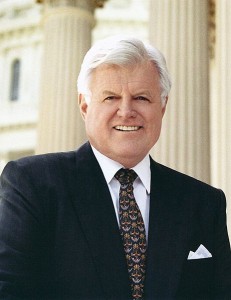Smoking Prevention, Big Tobacco and a ban on Clove Cigarettes
It is not just a rumor. As of September 22nd, it will be illegal to sell clove cigarettes in the United States. On June 11, 2009 the Senate passed H.R. 1256, The Family Smoking Prevention and Tobacco Control Act, with a vote of 79-17. The next day the House approved the same bill 307-97. (Who said bi-partisanship was dead?!?!). On June 22 President Obama signed the bill into law.
Here are some of the things the act does:
- Creates a tobacco control center within the FDA and gives the FDA authority to regulate the content, marketing and sale of tobacco products.
- Requires tobacco companies and importers to reveal all product ingredients and seek FDA approval for any new tobacco products.
- Allows the FDA to change tobacco product content and includes a ban on flavorings besides tobacco and menthol.
- Worthy to note that the ban on flavorings applies to cigarettes only. Pipe tobacco, cigars, and the like are not included.
- Calls for new rules to prevent sales except through direct, face-to-face exchanges between a retailer and a consumer.
- Limits advertising that could attract young smokers.
- Requires cigarette warning labels to cover 50 percent of the front and rear of each pack, with the word warning in capital letters.
- Bars the use of expressions such as “light, “mild” or “low” that give the impression that a particular tobacco product poses less of a health risk.
- It is worthy of note that the bill makes no provisions that ban the import of the banned items for personal consumption, only for “sale or distribution”, meaning that the law as it relates to the import of the items in question remains unchanged.
For the most part the regulations require tobacco companies to jump through a few more hoops and be a bit more forthcoming. There is however one industry that will be completely shut down by this law: the clove cigarette (kretek) industry. Once the bill goes into effect 3 months after being signed into law (September 22, 2009), it will be illegal to sell cigarettes with any flavoring other than menthol.
You can read the pertinent text of the bill below.
SPECIAL RULE FOR CIGARETTES.—Beginning 3 months after the date of enactment of the Family Smoking Prevention and Tobacco Control Act, a cigarette or any of its component parts (including the tobacco, filter, or paper) shall not contain, as a constituent (including a smoke constituent) or additive, an artificial or natural flavor (other than tobacco or menthol) or an herb or spice, including strawberry, grape, orange, clove, cinnamon, pineapple, vanilla, coconut, licorice, cocoa, chocolate, cherry, or coffee, that is a characterizing flavor of the tobacco product or tobacco smoke. Nothing in this subparagraph shall be construed to limit the Secretary’s authority to take action under this section or other sections of this Act applicable to menthol or any artificial or natural flavor, herb, or spice not specified in this subparagraph. ~Sec 907.a 1 A of the Family Smoking Prevention and Tobacco Control Bill
What makes this so reprehensible is the fact that the big tobacco companies have been pushing for this legislation. While it appears to seek to curb products that would be appealing to youth, the truth of the matter is this bill is designed to block competitors of the traditional tobacco dealers. Just look at the exception of menthols. Why is that flavor not included? The answer is simple: because people like Phillip Morris make way too much money to risk pissing them off. The irony of the matter really comes out when you start looking at statistics. Are kids using cloves and vanilla cigarettes a “gateway” to “harder” products like Marlboro Reds? No! Just read this analysis from Sarah Torribio.
Statistically, however, the flavor kids consider tastiest is straight-up tobacco, in the form of Marlboro brand cigarettes (produced by Philip Morris). Some 81 percent of established teen smokers consider Marlboro to be their ticket to flavor country, according to a February 12 article.
The next most popular flavor is mint, in the form of menthol cigarettes (Philip Morris produces a wide variety of menthol cigarettes, as well). A recent survey by the American Legacy Foundation turned up the following stats: Menthol cigarettes are preferred by 81 percent of black teens, 32 percent of white teens and 45 percent of Hispanic teens.
In 2007, high school students were surveyed about their smoking habits. Twenty percent of teens surveyed said they had smoked in the last month, according to the American Lung Association website.
A relatively small number of these had smoked clove cigarettes (6.8 percent of the 20 percent who had smoked) and candy-flavored bidi cigarettes (1.7 percent).
…
Philip Morris’ reasons for this stipulation are as clear as the numbers. Menthol cigarettes, which add up to 28 percent of cigarettes purchased in the United States, are used by a significant number of teenagers and an even more significant number of minority youths.
Thus, clove cigarettes (which represent .09 percent of all cigarettes purchased in the United States), and flavor cigarettes (which have an even smaller market share) are a red herring.
By supporting this bill, big tobacco companies like Phillip Morris and R.J. Reynolds can appear to be taking a stand against underage smoking, while suffering no ill effects to their bottom line. In fact, this bill helps them out by reducing the competition. While I can certainly get behind many of the other elements of the legislation, this ban on flavorings does nothing to protect children and instead limits the choices of adults. There is no evidence this ban will improve the health or decrease the smoking rate of Americans. What it best illustrates is how effective big corporations are at shielding their profits because of effective lobbying. For further analysis I recommend Up in Smoke: How the Tobacco Industry Shaped the New Smoking Bill.








 Many of you know that I generally split my radio listening between Conservative Talk Radio and NPR when I am driving. Occasionally I get so disgusted I would rather sit in silence than listen to a bunch of arrogant talking heads.
Many of you know that I generally split my radio listening between Conservative Talk Radio and NPR when I am driving. Occasionally I get so disgusted I would rather sit in silence than listen to a bunch of arrogant talking heads. Now, I have a bit of experience in this discussion. My capstone project for my Mass Comm undergrad degree was on bias in the media and the quest for objectivity. I am willing to admit (for the sake of discussion) that in general, the media leans slightly to the left. However, I will qualify that by saying the reason it does so has more to do with the type of people drawn to media rather than conscious effort (just like most economists are conservative). I would also remind people that the idea of objectivity in the news is a relatively new concept. In fact, it only became mainstream (no pun intended) in the last 75 years with the invention of the television – when only a few diverse people had access to your broadcast you wanted to make sure you did not alienate them. In fact, our country was not founded on the notion of an objective press, but quite the opposite. The press protected by our constitution is a partisan press. When the Bill of Rights was signed, nearly ever media outlet (newspapers of course) served as the mouthpiece of a political party…
Now, I have a bit of experience in this discussion. My capstone project for my Mass Comm undergrad degree was on bias in the media and the quest for objectivity. I am willing to admit (for the sake of discussion) that in general, the media leans slightly to the left. However, I will qualify that by saying the reason it does so has more to do with the type of people drawn to media rather than conscious effort (just like most economists are conservative). I would also remind people that the idea of objectivity in the news is a relatively new concept. In fact, it only became mainstream (no pun intended) in the last 75 years with the invention of the television – when only a few diverse people had access to your broadcast you wanted to make sure you did not alienate them. In fact, our country was not founded on the notion of an objective press, but quite the opposite. The press protected by our constitution is a partisan press. When the Bill of Rights was signed, nearly ever media outlet (newspapers of course) served as the mouthpiece of a political party… A friend of mine works with
A friend of mine works with